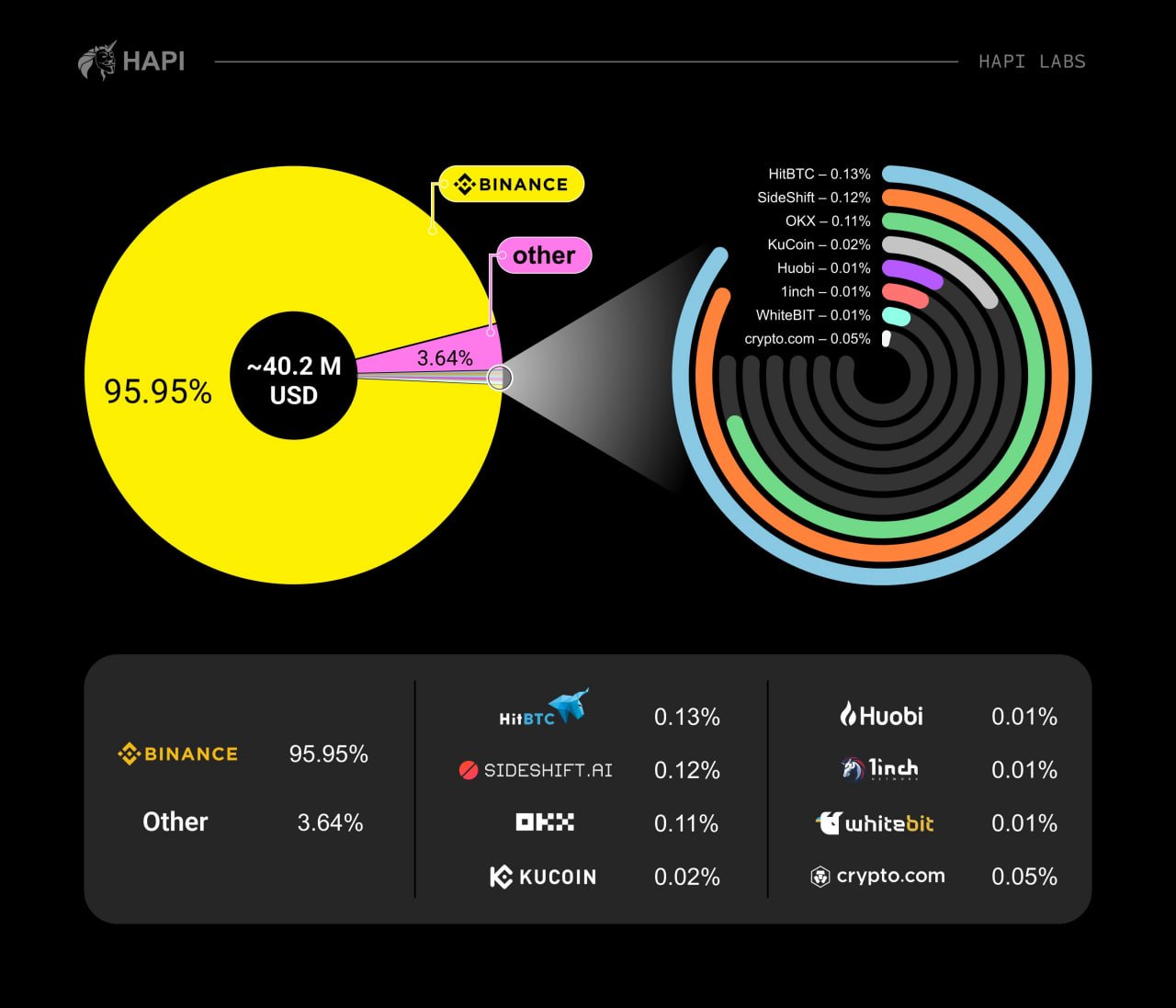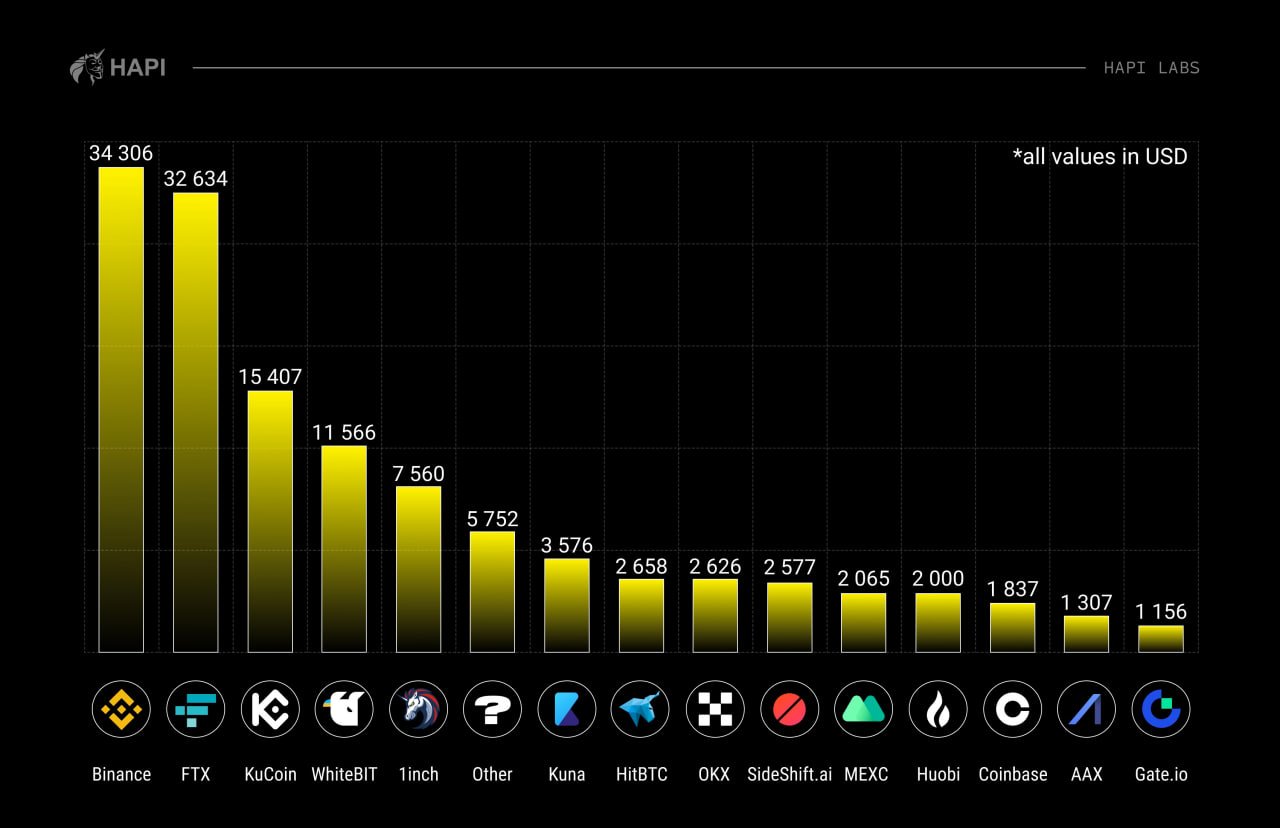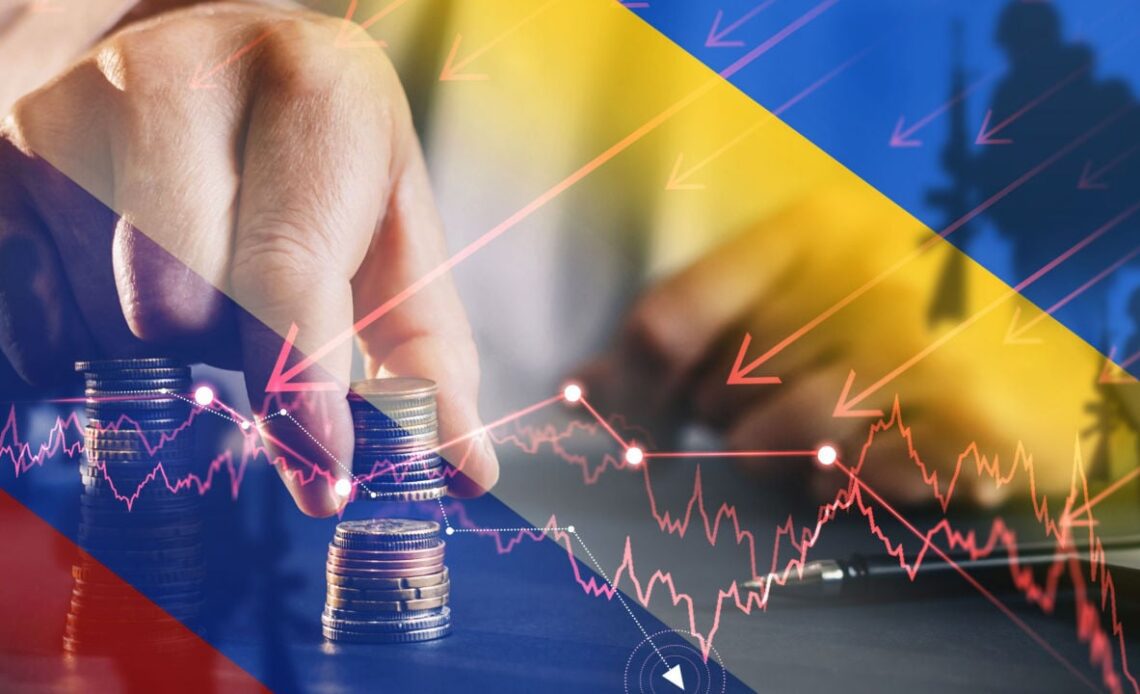Millions of U.S. dollars’ worth of cryptocurrency has been sent to centralized exchanges (CEXs), most notably Binance, from wallets providing funds in support of Russia’s war effort in Ukraine, transaction data suggests. According to Ukrainian analysts, the money was transferred to the crypto trading platforms in order to be laundered.
Over 90% of Pro-Russian Crypto Transfers Identified in a Study Sent to Largest Exchange
More than $40 million was sent last year from wallets that were used to sponsor the Russian invasion of Ukraine to cryptocurrency exchanges, according to an analysis of such transactions conducted by Hapi Labs. The main purpose of these transfers was to launder the money, the Ukrainian startup claims in a post on Twitter published Tuesday.
While various amounts went to a number of crypto platforms, nearly 96% of the digital cash reached Binance, the world’s largest cryptocurrency exchange. Researchers at the company, which provides blockchain tracking tools and data analysis software, believe this is an indication of failures in the anti-money laundering (AML) procedures.

At the same time, amounts transferred in the opposite direction — from exchanges to wallets used to support the Russian war on Ukraine — are much more modest, the decentralized security protocol developers pointed out.
“Binance is still among the leaders, but as we can see, it is not the only one. Say hello to the bankrupt @FTX_Official and others!” they remarked in another tweet. Two other major centralized exchanges, Kucoin and the European, Ukraine-rooted Whitebit, are also in the top five, along with the decentralized aggregator 1inch.

Hapi Labs tracked donations for weapons and ammunition intended for the Russian army and various private military companies, including groups associated with the two Russia-backed self-proclaimed republics in the Donetsk and Luhansk regions, Mark Letsyuk, the company’s head of analytics and research, told the crypto news outlet Forklog.
Often, exchanges don’t block wallets involved in the financing of the Russian military aggression for more than six months, despite requests by law enforcement authorities, the Ukrainian blockchain forensics experts pointed out.
“Centralized exchanges should block such wallets as soon as possible after notification. But most often they are either not blocked at all, or they are blocked very late, when dirty funds have already passed…
Click Here to Read the Full Original Article at Bitcoin News…
























